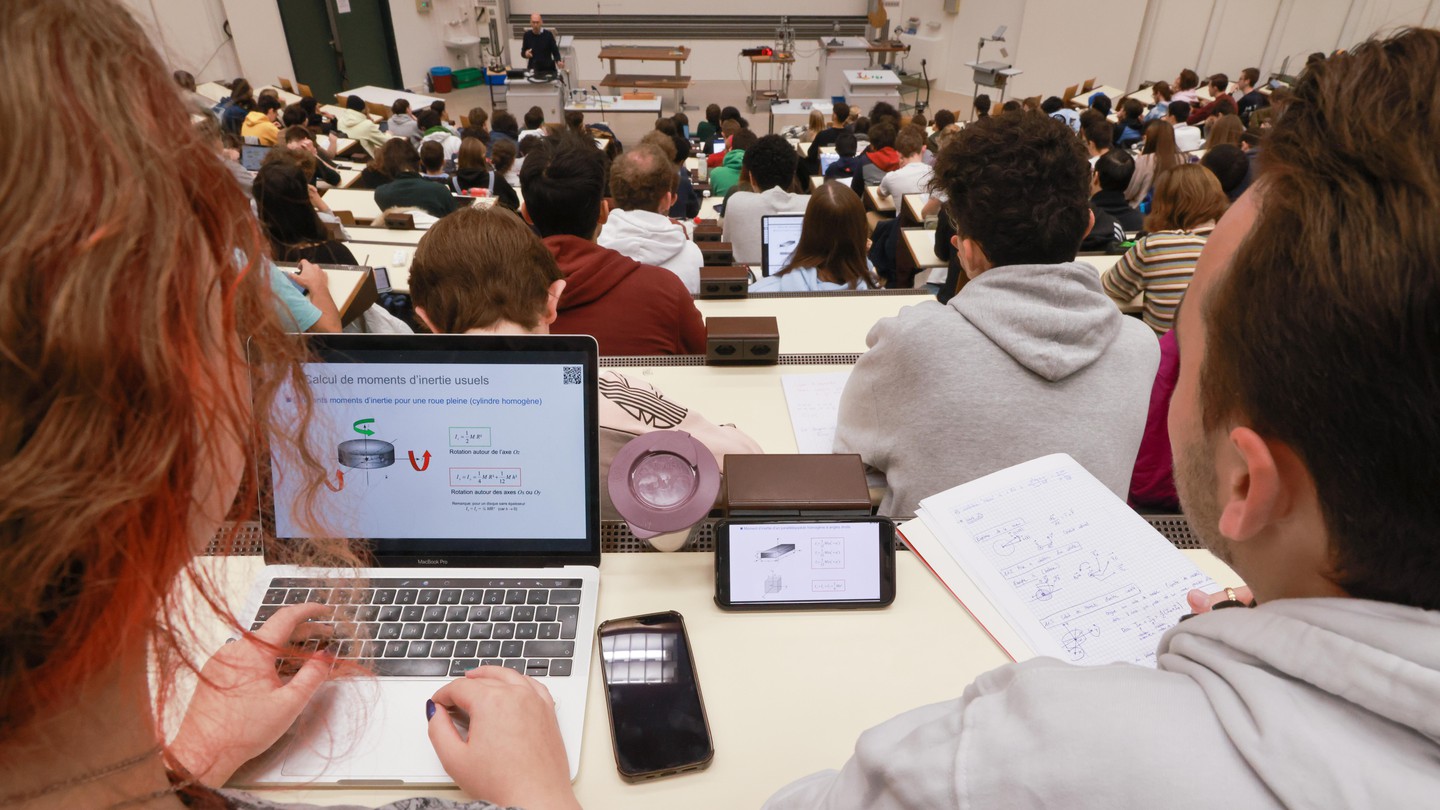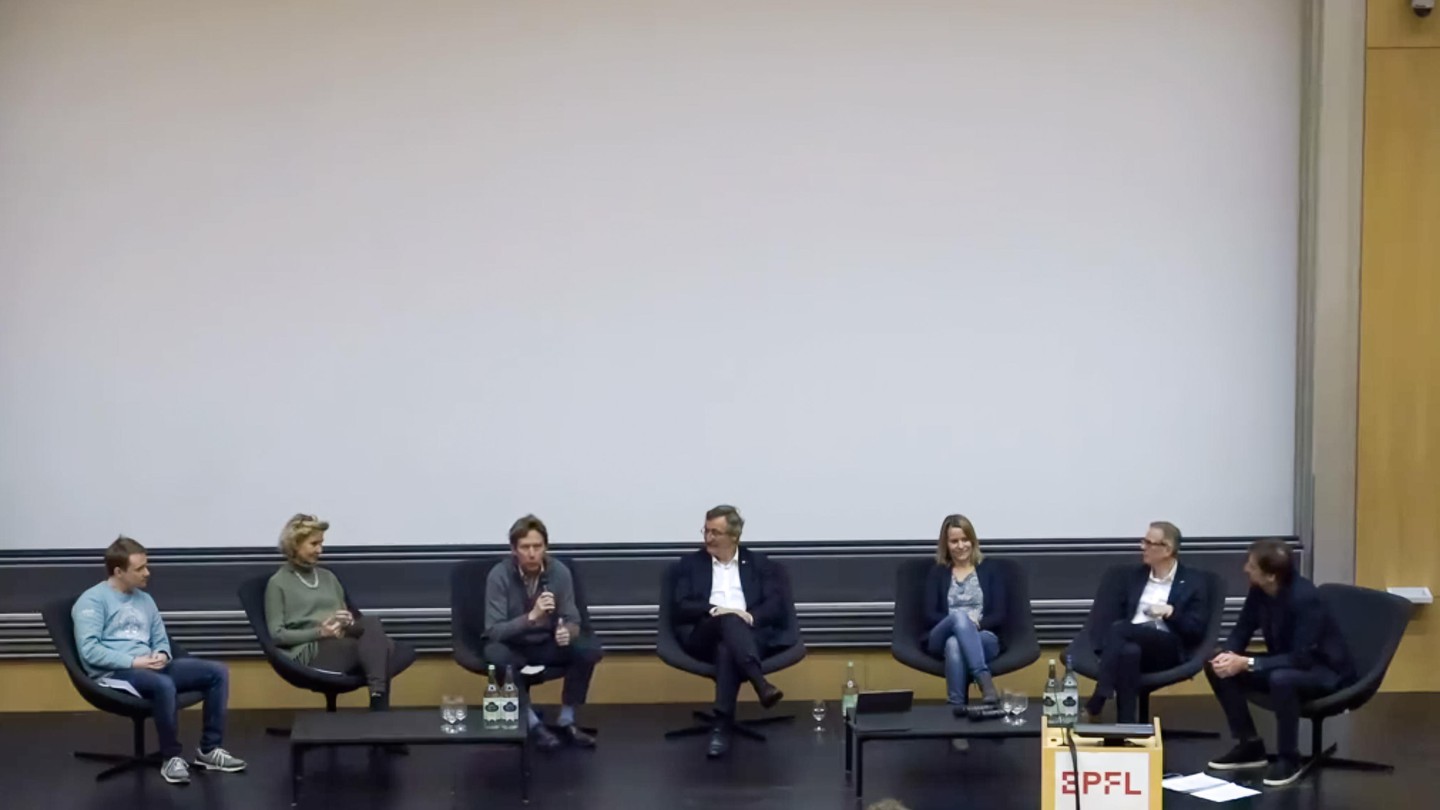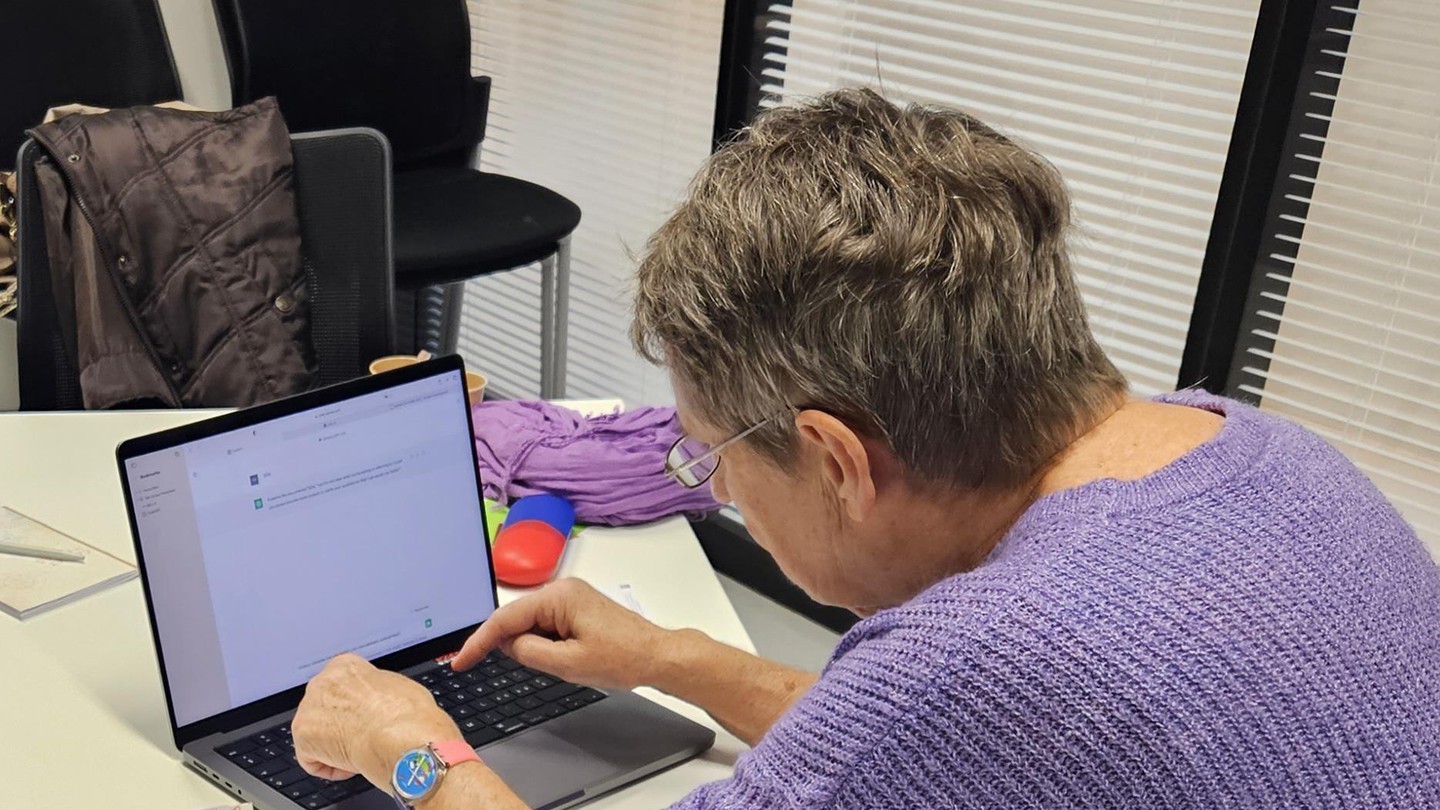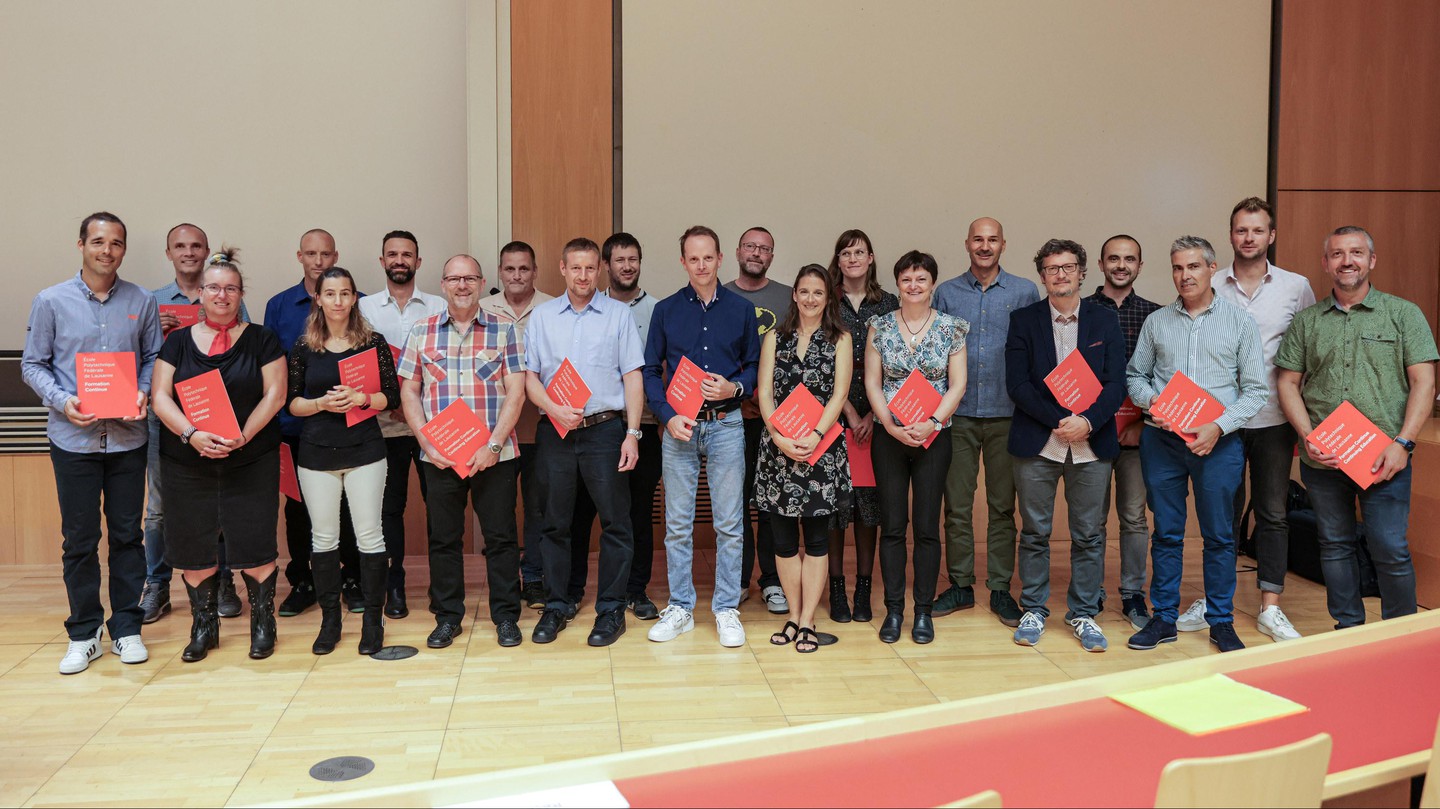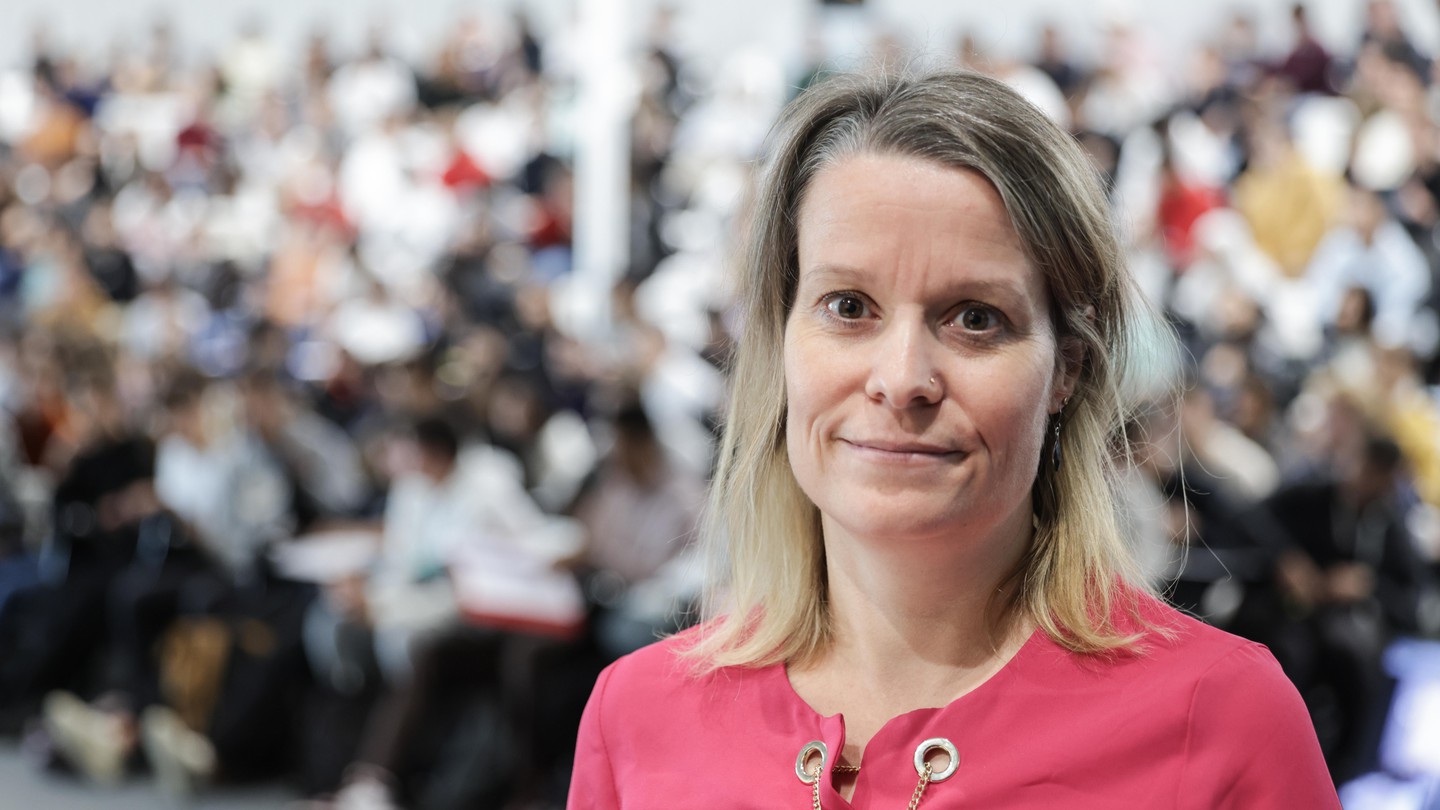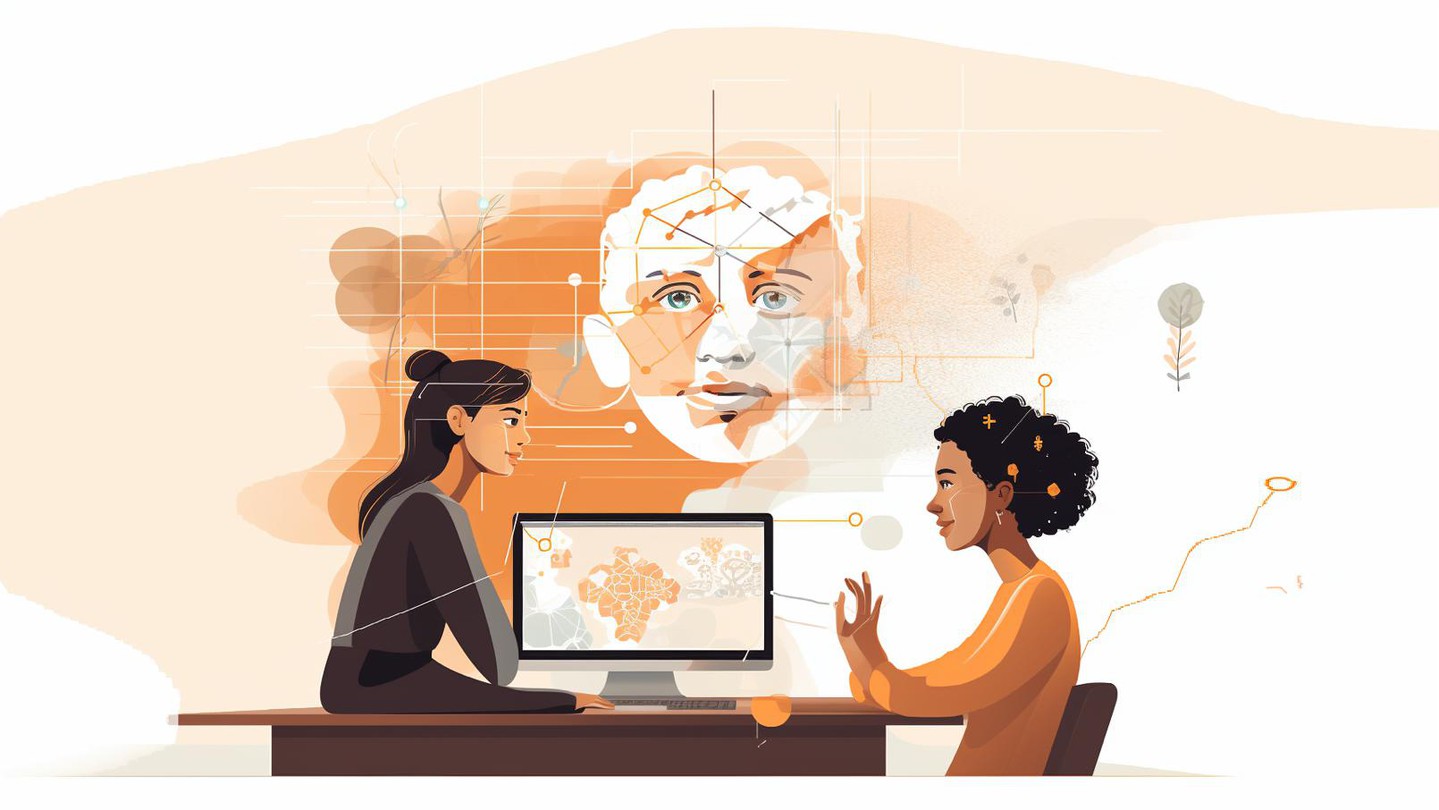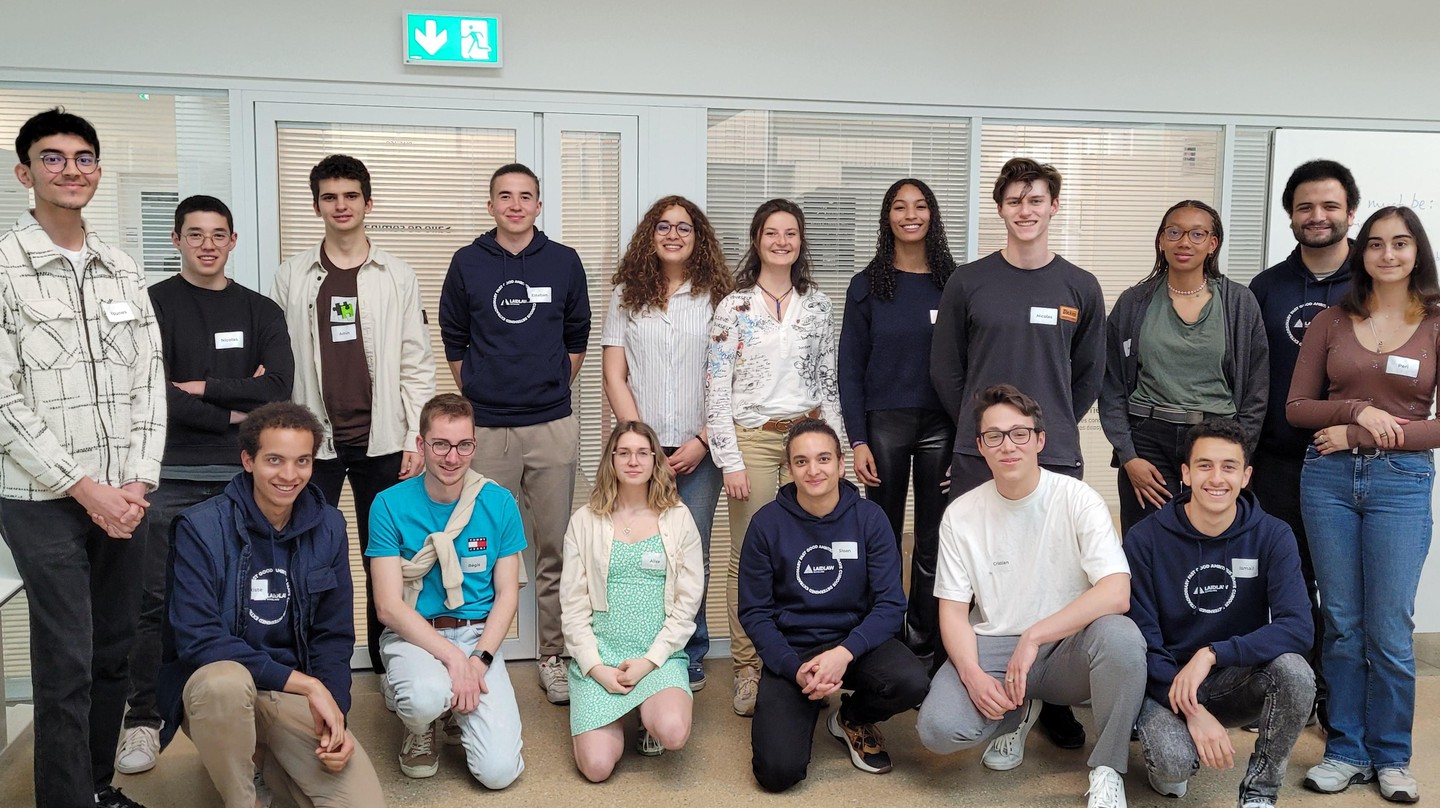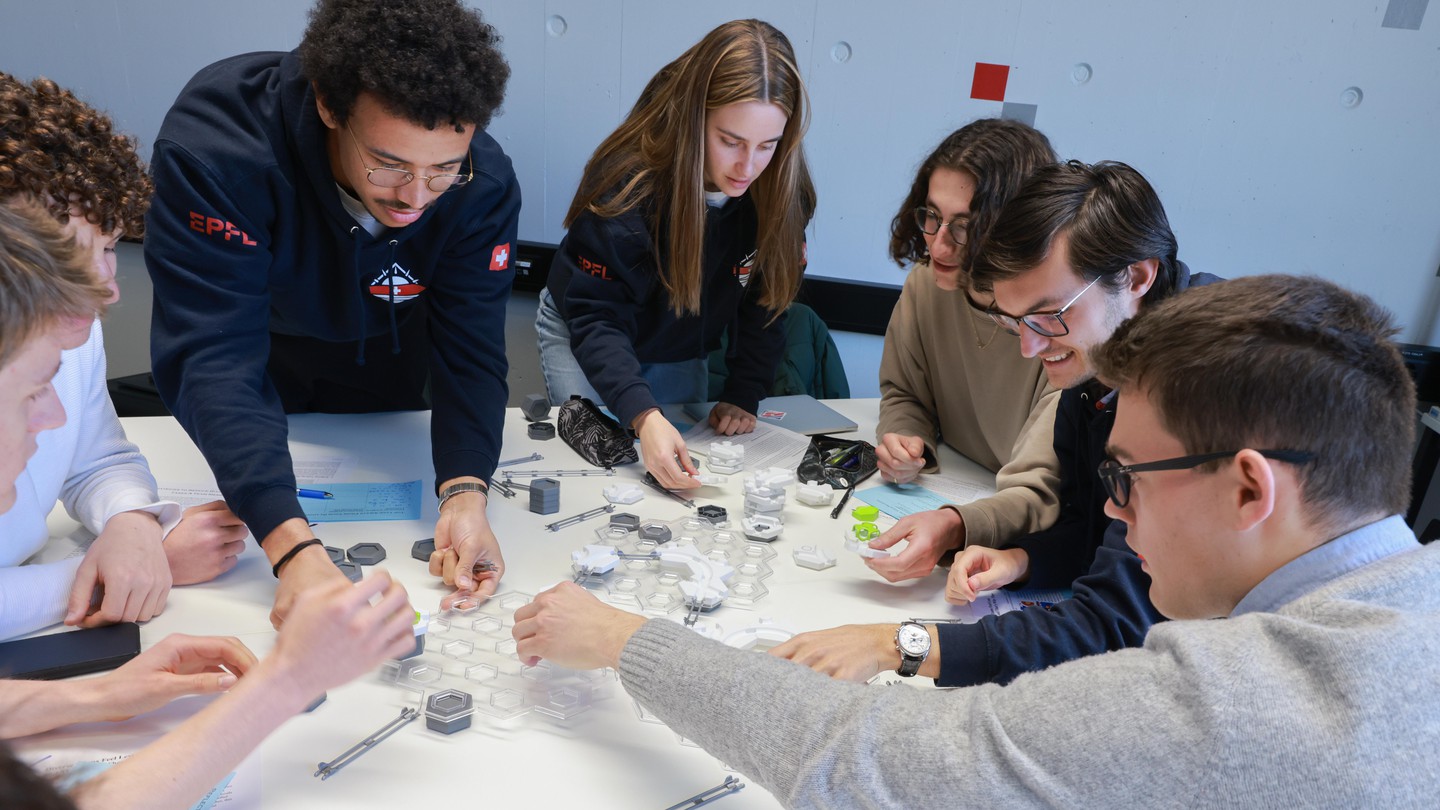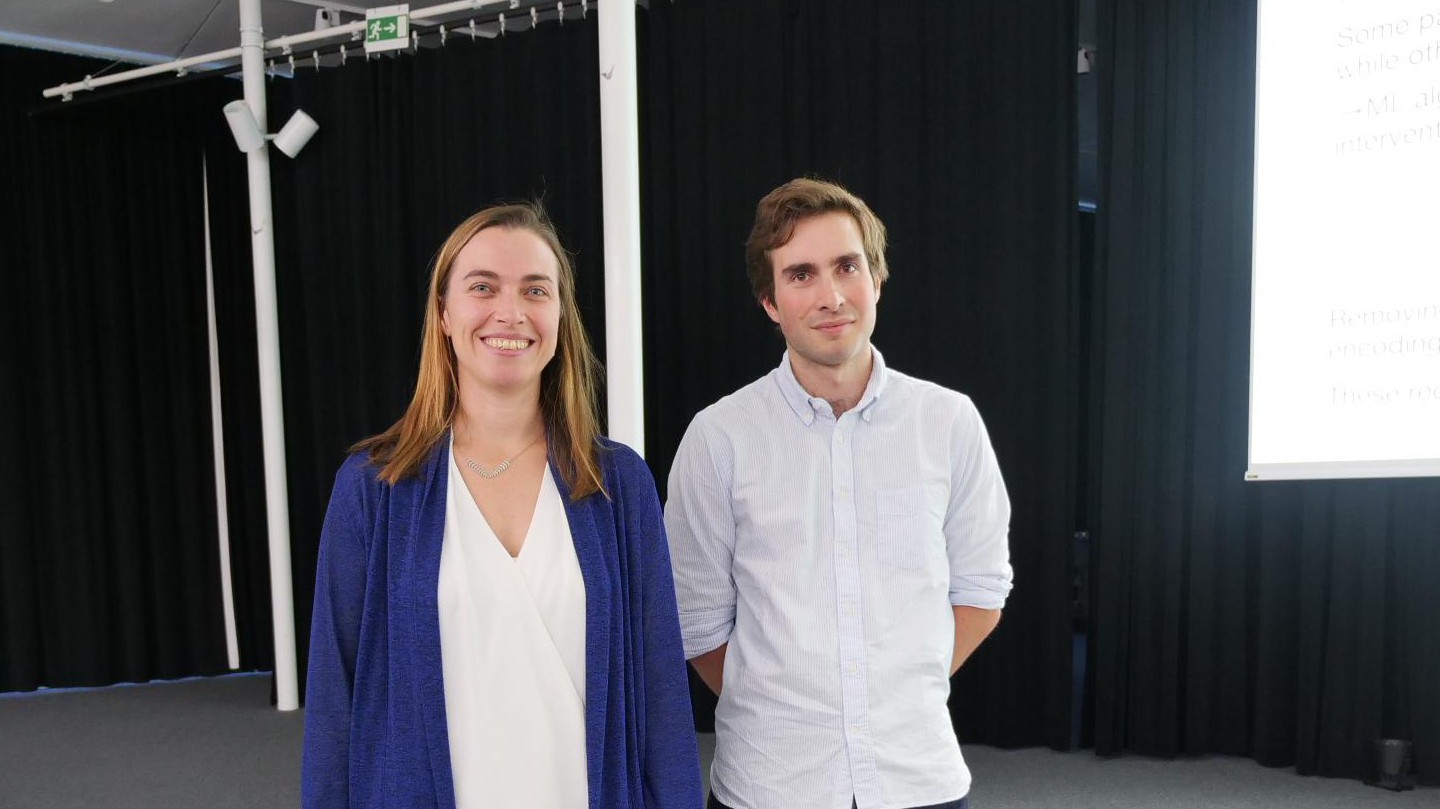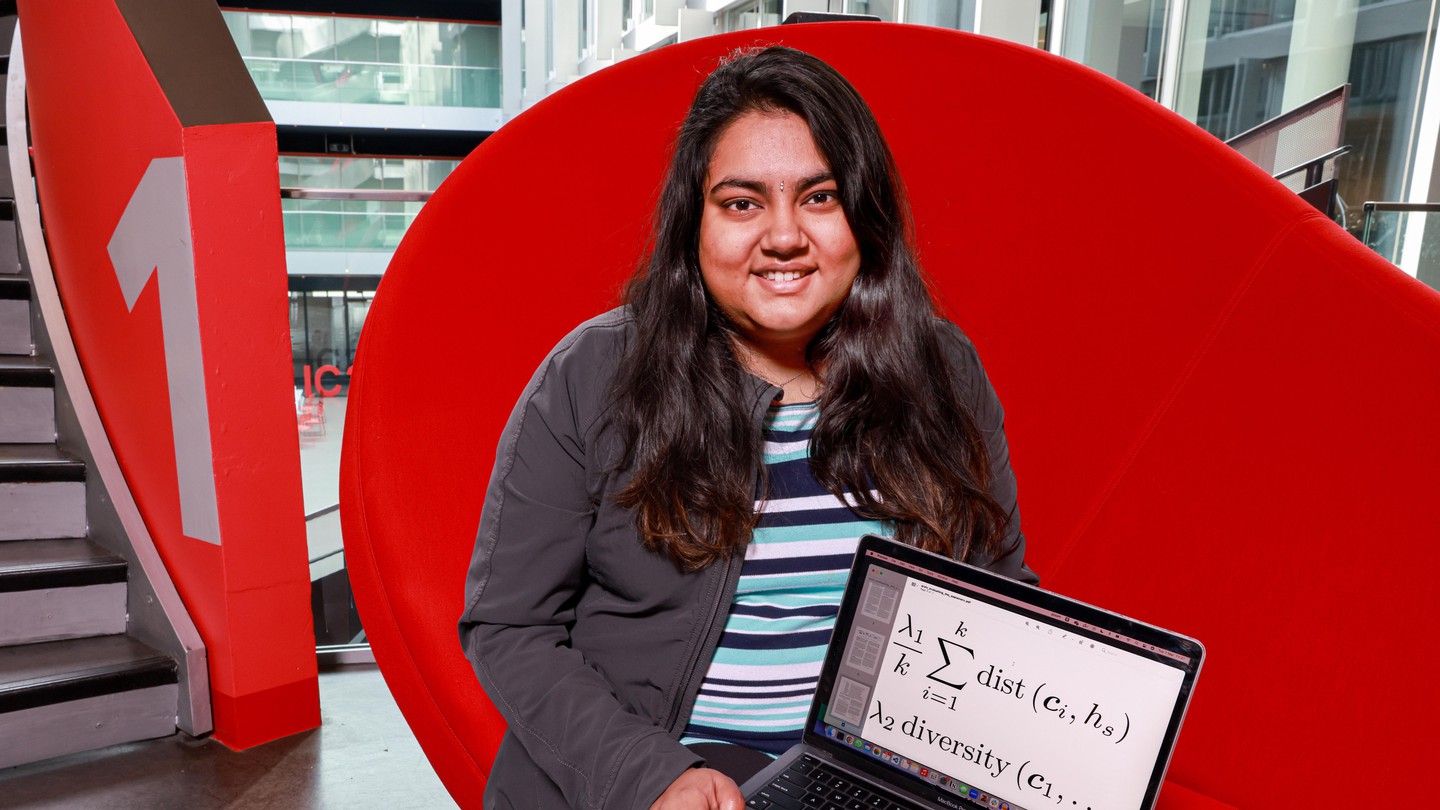During the five years that Paula Cacault commuted to Argentina’s largest public university, where she studied economics, she made sure to take a folding stool in her backpack in case she couldn’t find a seat in the crowded lecture hall. This is one of the reasons why the use of distance learning to alleviate the problem of overcrowded university classrooms is a matter of concern for the head of operations at the EPFL’s Enterprise for Society Center (E4S).
In October 2023, the study that she carried out with Christian Hildebrand, a professor of marketing analytics at the University of St. Gallen, and Jérémy Laurent-Lucchetti and Michele Pellizzari, both economics professors at the University of Geneva, won the Swiss Education Research Prize. In this research, they looked specifically at live streaming and how it can affect both in-person attendance and student achievement.
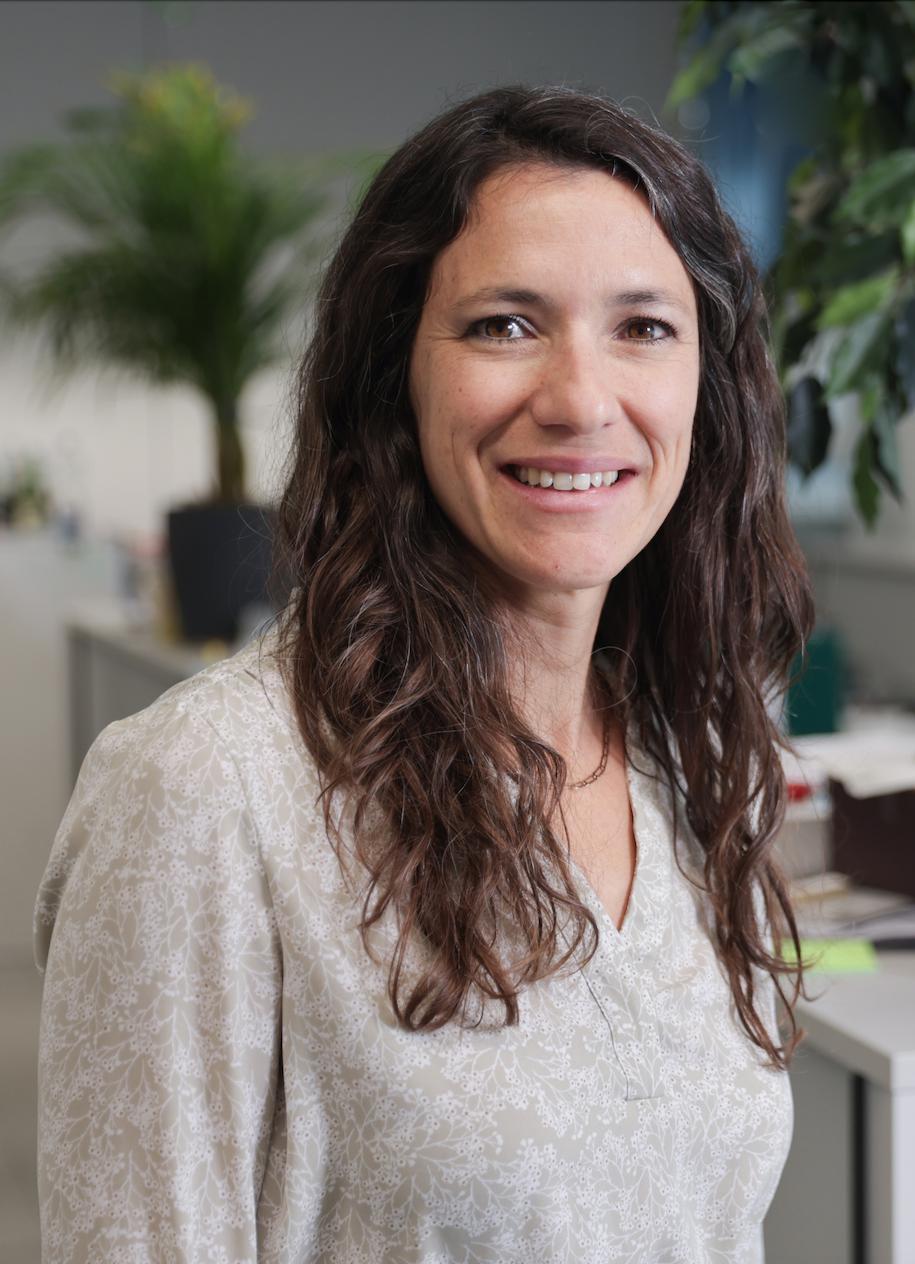
Head of operations at the EPFL’s Enterprise for Society Center (E4S)
© Alain Herzog 2023 EPFL
The research was performed in 2017 and involved 1,459 Bachelor’s students in the University of Geneva’s economics and management program. They were randomly assigned to three groups: 15% of the students were never given access to the live streaming service for their classes, 15% of the students always had access and 70% of the students could access the service during only some weeks selected at random. “We thought students would rush to use the streaming service whenever they could,” says Cacault. “But as it turned out, just 10% of them took advantage of it.” The authors subsequently analyzed students’ exam grades, and found that the live streaming generally improved the grades of high-achieving students and lowered the grades of low-achieving ones. “The literature indicates that students who are already struggling tend to do worse when professors stray from conventional teaching methods,” says Pellizzari.
Evolving habits
Fast-forward six years, distance learning has become much more widespread and students’ habits have changed. To get a better grasp of how EPFL students prefer to learn, Pierre Dillenbourg, the School’s Associate Vice President for Education, ran three surveys in conjunction with EPFL’s Teaching Support Center (CAPE) and LEARN Center. “Professors had noticed a shift in the way students approach their classes,” he says. “We wanted to understand what was going on so that we could adapt our teaching methods in response.”
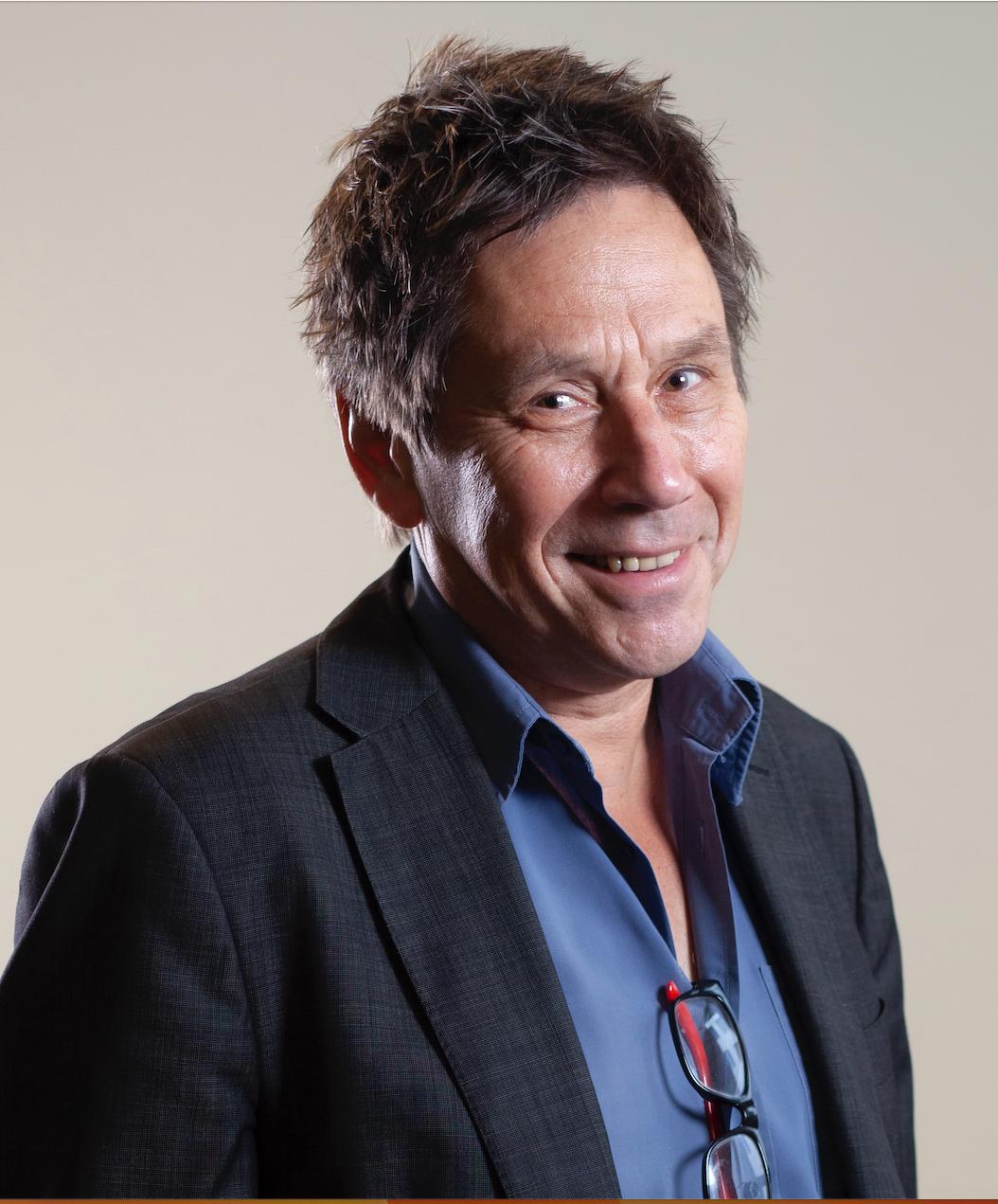
Associate Vice President for Education
© EPFL 2021
The three surveys were carried out in June 2022 (2,700 respondents), November 2022 (2,900 respondents) and June 2023 (1,400 respondents). The first two surveys found that of the students who were already at EPFL before the pandemic, over half (62.6% in June and 51.6% in November) said they now attended class in person less often.
Another finding was that in-person attendance proved to be higher in the fall. In November 2022, 74.7% of respondents said they “always” or “often” attended a class in person, compared with 57.4% in June 2022 and 61.7% in June 2023.
Even when students viewed lectures remotely, over half of them (52% on average for the three surveys) said they “always” or “often” came to campus anyway – mainly to study, work on projects or take part in social events.
Recorded lectures are a tool just like any other
While students appreciate it when professors make recordings of their lectures available online, that doesn’t prevent them from attending the class in person. “We were curious to see how students kept on top of the subject matter when they didn’t come to class, and we found that they used handouts, textbooks and slides just as much as they used recorded lectures,” says Dillenbourg. “So these recordings aren’t a decisive factor for in-person attendance.”
Students typically go to classes they find interesting, or particularly difficult, or stimulating because the professors run activities that aren’t part of the recorded lectures. The pandemic appears to have raised the bar in terms of what students expect from their teachers. Today, they want interactive experiences where there’s real added value to being physically present in a classroom. But has this selective attitude towards attendance impacted skills acquisition?
We were curious to see how students kept on top of the subject matter when they didn’t come to class, and we found that they used handouts, textbooks and slides just as much as they used recorded lectures. So these recordings aren’t a decisive factor for in-person attendance.
“The surveys were anonymous, so we couldn’t establish a link between reported in-person attendance and exam grades,” says Dillenbourg. “However, studies in other countries have shown that the correlation is very weak, except for first-year students and for classes that involve hands-on experiments. But of course, our goal at EPFL is for students to take full advantage of our great campus to learn from each other and interact with their professors.”
In terms of whether these new learning habits have widened the gap between high-achieving and low-achieving students, Cacault believes another study is in order. “Our 2017 study found that when there is a high cost associated with getting to class – a long commute or bad weather, for example – both categories of students use live streaming to roughly the same extent,” she says. “Why live streaming improves the grades of those who are doing well and lowers the grades of those who are struggling? We imagine it relates to the fact that when live streaming isn’t available, struggling students will make the effort to come to class even when the cost is high, while the best students will be tempted to skip class and learn on their own. When live streaming is available, however, struggling students will watch the lecture online instead of going to class, which hurts their grades, but the best students will watch the lecture instead of learning on their own, and this lifts their grades.”
The 2017 study only looked at the effects of live streaming – which isn’t the same as making recorded lectures available online. To examine this latter practice, Laurent-Lucchetti and Pellizzari are planning another study at the University of Geneva. “We’re still in the early stages, but our objective is to determine whether having access to video recordings affects in-person attendance and student achievement,” they say.
